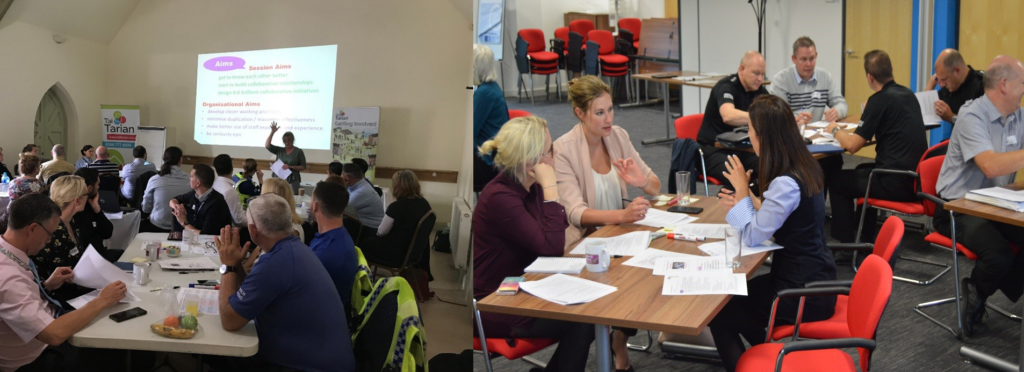#ACEsDecember Putting ACEs front and centre with the Well-being of Future Generations Act
20/12/18
Last week saw the start of my six-month secondment with the Office of the Future Generations Commissioner for Wales. The aim of my time here is to build on some of the work I’ve been doing with the housing sector in Wales, as well as supporting some wider work of the team.
In my previous role, one of my priorities was improving collaboration between social housing and police. It’s been widely recognised that good partnership working between related organisations results in greater efficiency and effectiveness – and this is never more important than in public service where the opportunity to directly improve outcomes for individuals, families and communities is very real. Through effective collaboration we can better understand the needs of our communities, resulting in earlier identification of need and more targeted responses, while saving resources.
This theory hits home when you look at the evidence on Adverse Childhood Experiences (ACEs) by Public Health Wales. The findings are stark, especially when presented like this:

As a consequence of this work we now know that exposure to ACEs can cause significant problems later in life such as: health harming behaviours, low mental well-being and increased likelihood of chronic diseases.

With this in mind, it’s vital that public services are working together to prevent ACE’s occurring. And police and social housing can play a big part in it but the landscape we are operating is changing. This evidence base requires services to move beyond being reactive. We have to become more preventative. Austerity, however, has meant that we don’t have the luxury of additional resources to do this. The answer, in my mind, lies in the principles of the Well-being of Future Generations Act-which requires us all to work smarter and in the words of Lord John Bird, the founder of the Big Issues, ‘to ensure we make tomorrow better than today’.
It’s this approach that’s behind this week’s launch of ‘Bush Row’ community drop in office in Neath Port Talbot, it’s a great example of how organisations can work ‘better together’.

The initiative, developed by Tai Tarian and South Wales Police, came as a result of challenging ourselves, as organisations, as to what more we can do to improve the outcomes we are trying to achieve with our communities. We wanted to work upstream, to identify issues before they cause harm – particularly because most of the ACEs occur within the home. Find out more about the Tai Tarian project here.

To do this, we brought together staff and officers to co-produce a better way of delivering our services for the communities we work with.

The co-production approach was well received and after a few hours of facilitated reflective practice, the room was full of ideas of how we could work better together. The following day senior leaders from both organisations agreed to move ahead with implementing the proposals. And ‘Bush Row’ Drop-in is the first of them. By co-locating, in void properties or community hubs, we’ve brought our services together to improve collaboration AND provide access to services at a time and place to suit service users.
I hope we continue to see more initiatives like this to help us get upstream of ACEs. As we head into the festive season I feel it’s more important than ever to remember the difference we can make as individuals, as well as organisations, to provide support to those who need it.
As we head into the festive season, I’m looking forward to spending time with my family and particularly being able to make Christmas special for my kids – all of which makes me acutely aware of the need to remember that as individuals and organisations we can make a real difference to others who may need support.
@BonnieNavarra